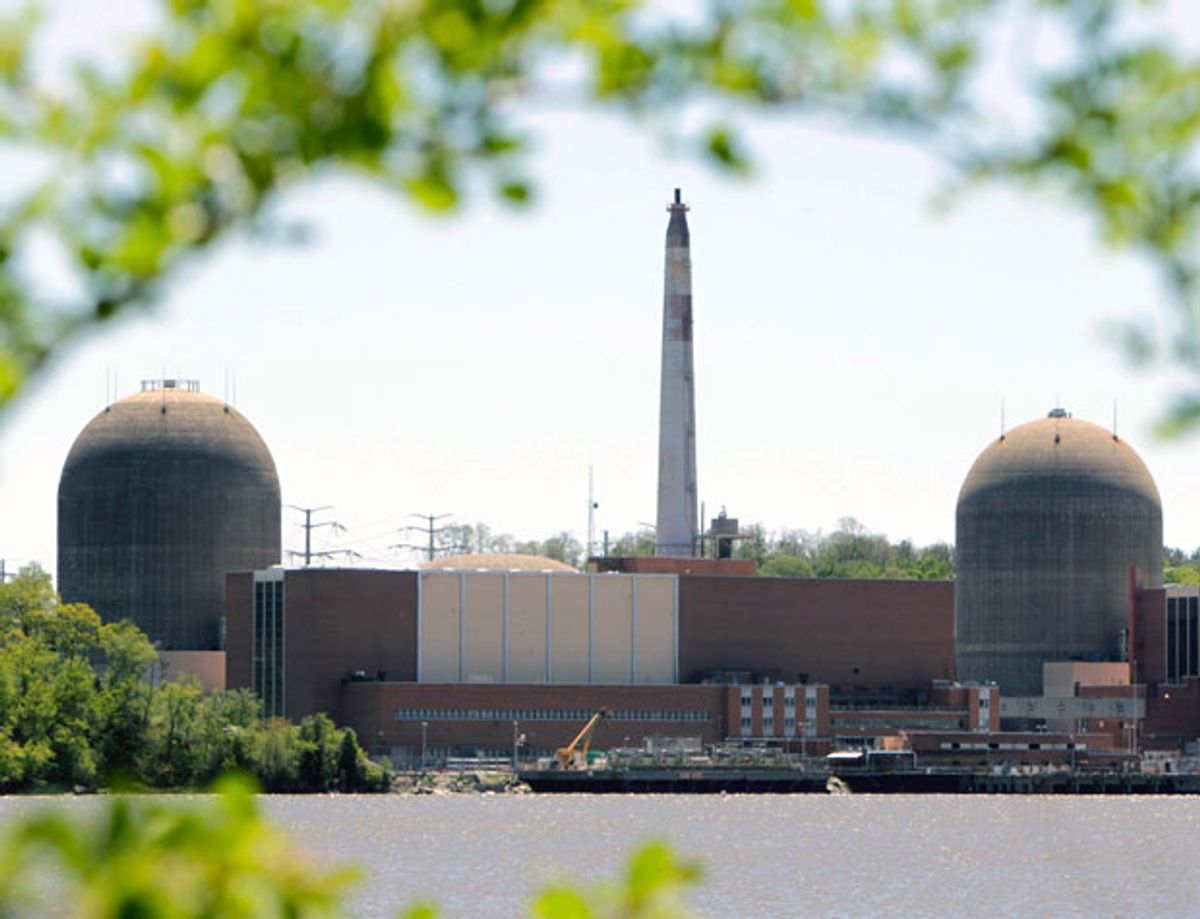New York City being New York City, it was hardly surprising Monday night that eight of the nine candidates vying to replace Michael Bloomberg as mayor said addressing climate change was a major city responsibility. Where New York City stands on issues of sustainability is, of course, of more than merely local interest. Besides being one of the world's great cities, under Bloomberg New York has emerged as a world leader in efforts to promote green development and plan for disruptive climate change effects. Bloomberg himself is a leader in national and international efforts to address climate change.
What was much more surprising was that eight of the nine—not exactly the same eight—declined to call for closure of the controversial Indian Point nuclear power plant, when invited to do so by the moderator. A relatively old nuclear power plant, Indian Point is situated on the Hudson River just 35 miles (55 kilometers) north of the city; a meltdown could contaminate the river basin and spread contamination to an area that would be virtually impossible to evacuate.
That was one highlight of the New York City Sustainability Forum held Monday evening at Cooper Union, in which five Democratic Party candidates, three Republicans and one Independent squared off on energy and the environment, with WNYC's highly regarded radio host Brian Lehrer presiding.
Public opinion on Indian Point has been rather evenly split, to be sure, with almost half of New Yorkers in favor of keeping the plant open and about 40 percent favoring its closure. But considering that opponents are likely to be the more passionate and activist voters, appealing to them might tempt the demagogue. To be sure, a reluctance to phase out nuclear is not inconsistent with taking a strong position on climate change, but that has not stopped most environmental organizations from remaining staunchly anti-nuclear and it has not stopped countries with strong climate policies (like Germany) from adopting a nuclear exit.
So it's noteworthy that eight of the nine mayoral candidates specifically opposing closure of the plant until the city knew how to replace its output, which accounts for up to a quarter of the city's electricity consumption. (And this is not to say that the one candidate advocating immediate closure of the plant, City Council chair Christine Quinn, the current front-runner, is demoagogic or insincere in her position. New York Governor Andrew Cuomo also would like to see it shuttered.)
That said, many of the issues discussed in detail last night are of mainly local interest: The particulars of flood-zone planning, for example, and siting of solid waste disposal facilities. But even when it comes down to such nuts and bolts other cities may have something to learn from NYC--and NYC may have a few things to learn as well. One candidate pointed out, for example, that New York recycles 20 percent of its trash, while San Francisco is close to 80 percent. Moderator Lehrer observed that one of eight New Yorkers suffer from asthma, and that the rates are much higher in poor neighborhoods where there is a lot of trucking.
Urban air pollution was an area in which the nine candidates were surprisingly weak, though eight of the the nine agreed there is too much traffic south of Manhattan's 59th Street—an issue that Bloomberg tried unsuccessfully to address with a plan for congestion pricing, modeled on London's. Figuring out how to reduce automotive traffic in major cities is of course a major issue everywhere.
Photo: Seth Wenig/AP Photo



